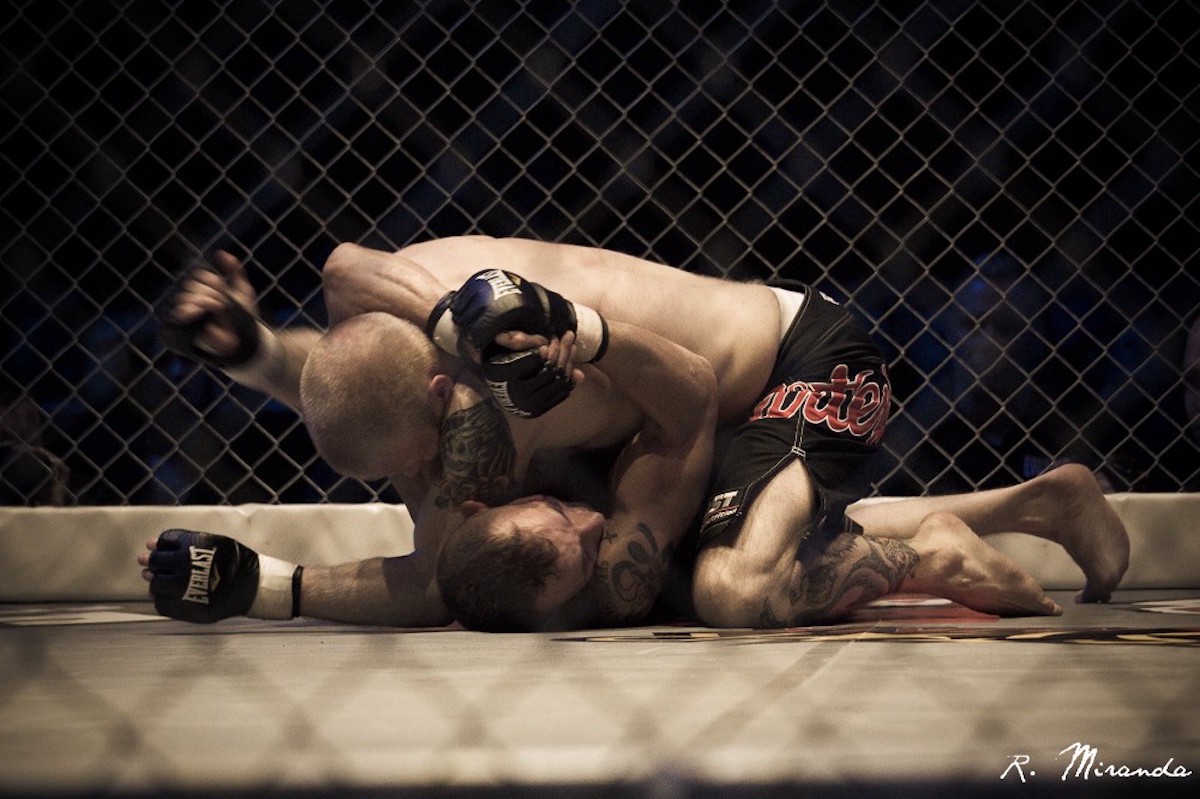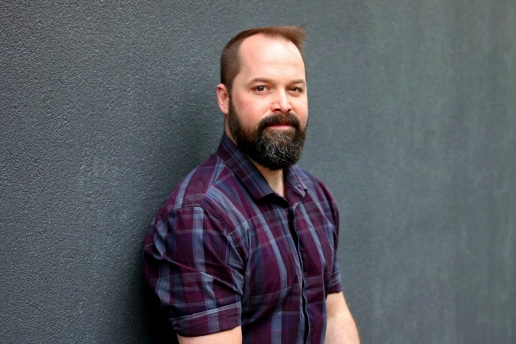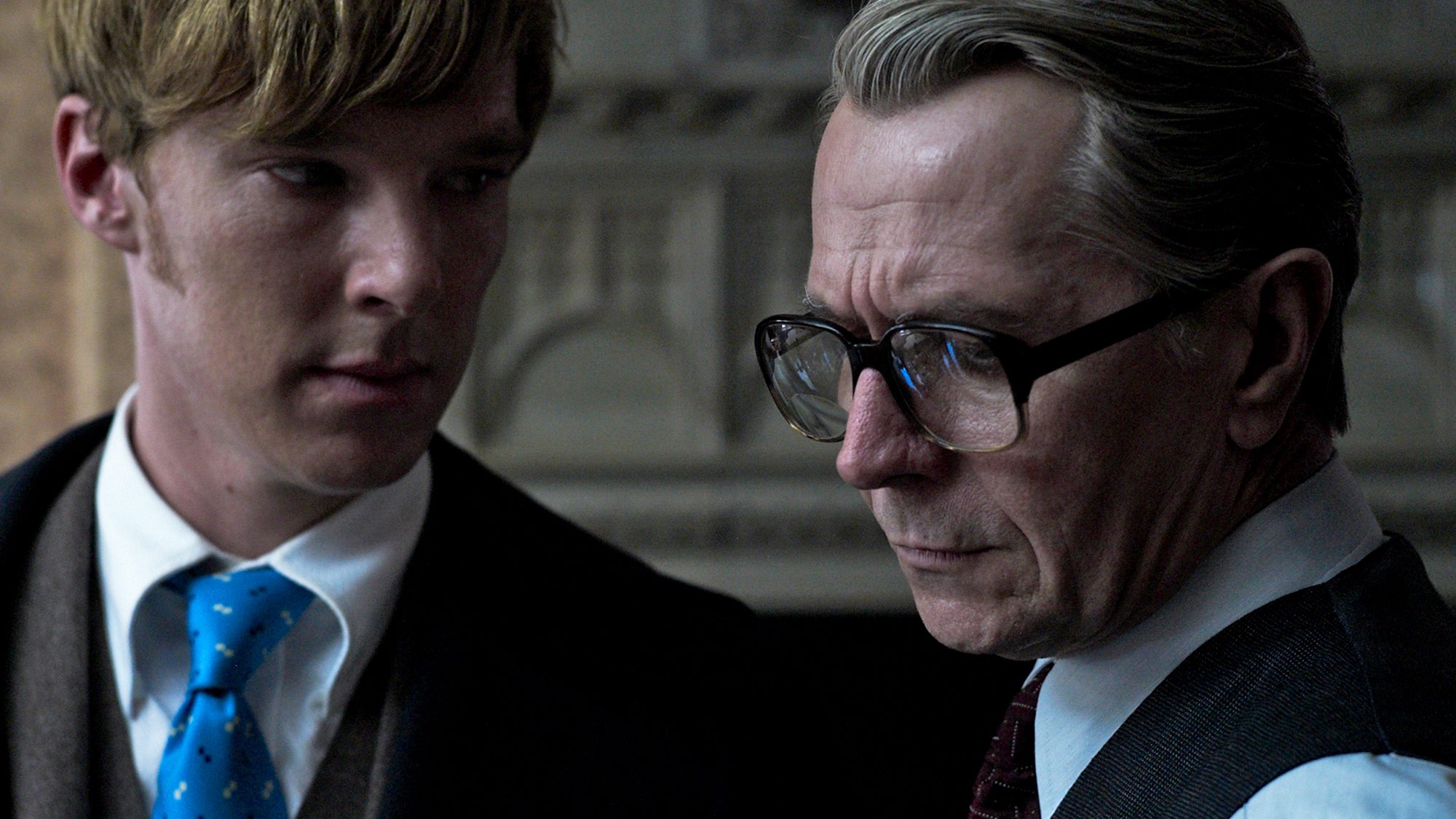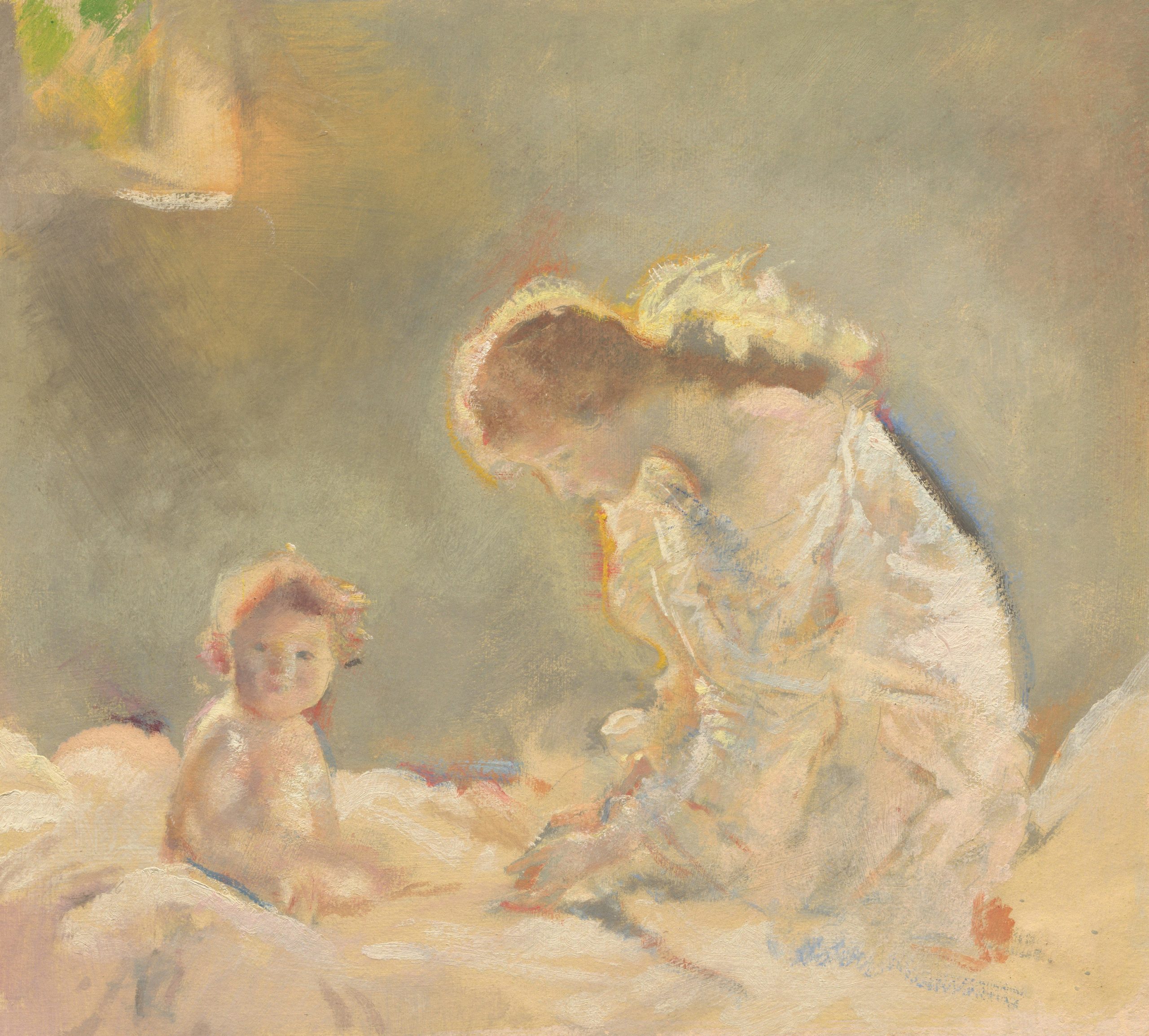interviews
On Poverty, Sports, and Violent Men
John Irving and Kevin Hardcastle discuss combat sports, rural poverty, and writing about good people who do bad things

Last month, word started coming across the border from Canada of a new book from an author named Kevin Hardcastle. It’s called In the Cage (Biblioasis), and the most common point of comparison has been Cormac McCarthy, a claim we might have been inclined to discount if it weren’t coming from Donald Ray Pollock, a favorite around here and a man who knows a thing or two about Cormac McCarthy. The Globe and Mail described the novel, about “a retired cage fighter fallen on hard times, trying to support his family in Ontario’s Simcoe County” as “noirish,” “folkoric,” and “a fierce, beautiful book.” As it turns out, another of Hardcastle’s admirers is John Irving, who reached out about interviewing Hardcastle for Electric Literature.
Now, incisive, hardscrabble novels about fighters fallen from grace and turned to crime just so happen to fall in our wheelhouse, but even if that weren’t the case we’re not in the habit of turning down pitches from John Irving. So, please, read and enjoy Irving and Hardcastle’s conversation. They discussed rural poverty, combat sports, and refusing to write “utterly shitty characters.”
John Irving: People make — or, out of their circumstances, are forced to make — dire decisions in your novel, In the Cage. This is also true of many of the stories collected in Debris. Does this come from your sympathy for, and understanding of, the rural poor? Or is this partly an inclination in your imagination — one that draws you to the drama of dire decisions? Maybe both?
Kevin Hardcastle: The drive behind almost all of my work is to write poor people, and the rural poor, with empathy and understanding. And to not romanticize or write their situations as a tool for reflection or comparison. I grew up working class, and we were pretty damn poor at times, and I saw the damage it does to people. I was lucky enough to have a close, supportive family, who did the best with what they had, and that gave me a shot at writing these stories even though my chances of getting to publish books were never going to be very good, realistically, coming from my socioeconomic background, and from a small town where there are very few examples of artists who have ever made a living at their trade.
After making it this far, there is a wealth of material and an organic connection to the characters I write that helps keep the stories grounded without them becoming some kind of lesson, or too miserable, and without letting the people become caricatures. I hope, at least. I think the tightness of my family, despite hardship and tragedy, has taught me not to feel shame over being poor, or rural poor. I detest poverty as a condition and the factors that force it to be a way of life for so many. That is probably why I write criminals sympathetically. Most of those characters I write are good people, under intense pressure, who do what they’ve got to do to stay alive, or protect their families.
On a simpler level, I care most about writing where something is at stake. A small event or trick of chance that would be a nuisance to the rich can destroy the life of a poor person. I always think on that while I write. As a result, some of the most traumatic and painful parts of this narrative may hit close to home for many readers.
When you write the poor honestly, something is always at stake.
JI: Similarly, heartbreaking endings come naturally to you. You’re clearly drawn to them; you’re good at them. How much of this is based on what you’ve seen? How much on what you’ve read — meaning, what you most like to read? And again — the “imagination” word — how much is this what you instinctually imagine? Maybe all three?
KH: Well, I appreciate that very much, and I do put a lot of work into the endings. I have had a good deal of personal experience with elements in my fiction that fate the characters to potentially heartbreaking ends. I know poverty and mental illness and addiction and violence quite well.
That being said. I’ve been exposed to some bad things, but lots of that is a toe in the water compared to what others have gone through, and have sometimes survived. I still root many of the direst fictional events and situations in reality, but I use experience to extrapolate how much worse it could actually be, and where that’ll lead a person. I try to humanize hard actions and articulate how a person might get to a place where they push all of their chips into the middle. I’m not interested in explaining it all away, but I want it to be understood, and for readers to feel the weight of those decisions and what they ultimately lead to.
Watch Chuck Palahniuk Read Fight Club 4 Kids
JI: Violence is common in your literary world, where violence is also vividly described. I’m thinking of that boxed maxim to the left of the masthead to The New York Times: ALL THE NEWS THAT’S FIT TO PRINT. I’ve often thought of good fiction as the news that is necessary to hear, despite it’s not being “fit” to print. Not only the Times, but many newspapers, would tell us that someone uttered “a homosexual slur.” That’s not good enough (or bad enough) for good fiction; we have to hear the actual words. There is an awfulness to the violence in your fiction, but how else should violence be described? Everyone today asks where fiction “comes from”; related to my first two question, tell me about the violence. I’m guessing it’s true to what you’ve seen; I’m also guessing that you hate it, but you seem drawn to depict it truthfully. Increasingly, today, isn’t violence — in one form or another — what we most fear? Tell us about the violence in your writing, and in the world.
KH: It is important to speak plainly about violence and to write it plainly. This is something I believe deeply. As you suggest, good fiction tries to look straight down the maw of ugly or difficult matters — but without trying to be exploitative or too fantastical, or, as with writing poverty, without romanticizing what violence tends to be. If we engage with violence as it is, we can also start to see all the disparate components involved, whether in intent or magnitude. All violence is not the same, and all violence does not come from the same place. Writers tend to do better with sex as they depict it, and seem more comfortable doing that. But they lousy up writing about violence often. I think I do the latter far better, but that might just make me the weirdo here.
To apply all this to In the Cage, I had to write all those different kinds of violence with some authenticity. If you write violence incorrectly, or fudge it to make it easier to digest, you lose any lasting effect on your reader, and your work will not hold any goddamn water at all when somebody who understands that violence firsthand takes a look at it. There was a lot of conversation in the editing about how likely it is for a sawed-off shotgun to blow an arm off (something I’d suspect you have researched). Or about how your eyeball often sinks lower in your face when you have a broken orbital (something I knew from having a doctor examine a maxillary fracture in my face from sparring). Even for a regular reader though, who has never (luckily) experienced violence of this magnitude, it is much the same as lines or paragraphs where the writer is trying to tell us something meaningful without fully focusing on it. If you fake that, and don’t feel it yourself, in your bones, nobody else will.
Further, you can write violence in an overblown, bad action movie kind of way. Nobody flies across a room. Nobody’s fist explodes on someone’s face. That is ridiculous. If you are writing violence fantastically, to make a point about something else, I understand that approach. But, if you are trying to speak honestly about it, and write honestly about it, you have to understand what every single word means and where it should go.
Where it becomes especially important in my book is where “violence” as an aggressive, sudden, brutal act, in the depicted shootings and stabbings and murders, must be distinguished from the so-called “violence” of the Mixed Martial Arts fights. There is violence there, but this is where the general public, and many other sports fans, miss the point of what MMA is. I do not think that MMA is “violence,” as it stands. Violent and dangerous physical activities happen in the cage, but it is an athletic contest of skill, and technique, and heart, and mental fortitude that I do not think has an equal. To the average person, even a boxing or football fan, the damage from kicks and knees and elbows, the grappling, the blood, might appear more rude and brutal. But they are far less dangerous than twelve rounds of boxing or linesmen smashing each other over and over for the duration of a game. If you wouldn’t call football “violence,” you shouldn’t be calling combat sports violence. That’s important.
As we’ve discussed before, in an interview I did with you when Avenue of Mysteries came out, the monotony of the training in a combat sport, the workmanlike approach of it would bewilder people. Sure, there is room for nervousness, and fear, and fury, but they have to have been channeled and controlled for you to be successful. You can certainly apply a workmanlike approach to killing or hurting people, but much of that level of physical violence happens from losing to some of those impulses. That kind of violence also happens with more chance involved, a level of randomness not under the control of anyone. In most cases of real gunplay or fights in the street, the man or woman who should win does not always, and they will rarely come out of it unscathed. They are subject to chance in a way that athletes in the cage are not.
There is a reason I wrote Daniel as a truly exceptional fighter and a real problem to deal with. To make him formidable, sure, but also to show even a man that hard can never be fully prepared for violence at its worst. He can even be robbed of victory within the cage, within the rules, but that is a safer space than the outside world is for him, by far.
A small event or trick of chance that would be a nuisance to the rich can destroy the life of a poor person. I always think on that while I write.
JI: The sure-handed craftsmanship in the Debris collection of stories is very present in In the Cage, but the novel gathers a momentum that no short story can achieve. Similarly, a novel allows you to develop characters in a way no short story can equal. In the case of In the Cage, I don’t mean only Daniel and Sarah, though they are complex and heartfelt characters. I mean the bad guys, too. Wallace, Clayton, Tarbell — they’re truly terrifying. Tell me about your transition from writing short stories to expanding in a novel. Was it natural? Was it hard?
KH: This all happened sort of backwards for me, because I’d actually written a much crappier version of this novel six or seven years ago. I rewrote it before my then-agent tried to sell it and nobody would buy the thing. It certainly had its flaws but there was a good book in there for an editor willing to really dig in. Unfortunately, nobody was willing to take a chance on it at that stage in my career.
So, in the meantime I kept writing stories and getting them published, and that led to Debris, and to my publisher Biblioasis and editor John Metcalf. As the stories were mostly published in journals, and we didn’t have a ton of work to do, John asked for the novel nobody would bite on, and told me he saw something in there and would take a crack at it. That’s how I got one of the most important and influential editors in Canada.
I have heard a few excellent novelists, like yourself, or Cormac McCarthy, talk about the novel as the most impactful and lasting form of fiction writing, but I still believe in the short story as an unforgiving, bare bones, naked-as-the-day-you-were-born type of writing that demands so much skill and precision. My main goal here, in retrofitting the novel with the tools I’d sharpened writing stories, was to make sure the prose got up to that level throughout, and that I held the same kind of focus on the purpose and weight of the narrative, and the characters, from the first word to the last. It wasn’t easy to keep rebuilding this book, strengthening and defining the characters more clearly draft after draft, but the closer I got the more I felt like I’d finally written the book I wanted to write.

JI: An aura of foreboding accompanies Daniel in In the Cage. You do foreboding well — the criminal associates in Daniel’s past, the low-lifes who overhang and cloud his future. “In the dark and pisswet alleyway” — how Chapter Two begins — does not bode well. “I’ve about had it with this shit,” Daniel says, only halfway through the second chapter. Near the end of Chapter Three, there’s another ominous omen — Daniel sees something, or he imagines he does. “A shape there. A second later it was gone and he didn’t know if it was an animal or just a trick of the brain.” No doubt there’s trouble coming. Where did you learn this — from what or from whom? It takes practice to get foreboding right.
KH: I think that is where my interest in writing horror fiction comes into play, and because I have always gravitated toward atmosphere and tone. I started reading your friend Stephen King when I was ten years old (thanks mom), and, while I didn’t understand all of the nuance and literary work, I understood the underlying tension in the characters’ lives. And I probably internalized, even as a young person, lessons on how to write real people, especially working class people — which King is not given enough credit for by even the most self-serious “literary” writers — and then to have the worst happen to them.
This is something you do as well, in that I’ve heard you answer questions about autobiographical writing by saying you write what you most fear happening to those you love, not what has actually happened. I do both, but I agree with that approach of building characters we empathize with and can see as real, then have all kinds of horrible shit happen to them, laying it out as stark and ugly as it needs to be.
The trick is not to telegraph entirely, but I don’t mind a little bit of fatalism, and the idea of the reader knowing that the axe is going to fall at some point — but not knowing when or how hard or exactly to whom. My favourite authors are those who can cultivate an atmosphere where fate looms heavy, but there is still some mystery as the characters move toward their end. Books like Death Comes for the Archbishop by Willa Cather, or the work of my favourite Canadian author, Alistair MacLeod, build such a powerful sense of mystery in the way characters experience the natural world. Cormac McCarthy spoiled my horror aspirations forever when I read him, because I realized nothing could be more frightening than the way he wrote almost-historical fiction, and the natural world, and the underlying terrors people suffer or provide.
It’s always been my aim to write stories where you know that there are only a few ways the narrative can end, few of them happy, but you will still follow the characters and root for them as they fight. The more serious and effective that sense of foreboding is, the more the reader will dig in.
JI: Your sympathy, extended to minor characters — even toward thugs who misbehave — is everywhere apparent. Daniel’s fellow worker, LeBlanc, has been laid off, too. They go out for a beer together. But LeBlanc presses Daniel to connect him with the criminals LeBlanc knows Daniel knows. When Daniel refuses, they have an ugly fight in the men’s room; Daniel takes the beaten LeBlanc home. Daniel’s unexpected sympathy for LeBlanc ends Chapter Ten — when Daniel realizes that LeBlanc’s “old lady” has left him, and the defeated man lives alone. Tell me about the origins of this sympathy.
KH: I think I cheat a bit by rarely writing utterly shitty characters. Instead, I write a lot of good people who are compelled to do bad things. In this novel, that includes some of the thugs and criminals that have been shaped by their injuries and trauma, the circumstances of their lives and the trappings of the region that made them. If I’ve done my job and genuinely empathize with them, the reader might too. I do my best not to be precious about where their decisions lead them. I love many characters I write, even the minor ones, but I don’t hesitate to harm or kill them when their number is up.
Support Electric Lit: Become a Member!
JI: I like what’s imaginative in your fiction, but I also like what’s realistic — what’s authentic. I believe those two elements, in the same story, are essential. You’ve done a little fighting — a little training to fight. I did, too. I competed as a wrestler for twenty years; I coached wrestling (I trained younger wrestlers) until I was forty-seven. You’ve trained for MMA. I recognize Jung Woo, the Jiu-Jitsu guy; I’ve rolled around with guys like him. And when Daniel loses a fight because of a bad ref — a bad call — he doesn’t try to justify himself. “I lost,” he says. Right or wrong call, that’s the truth; a bad call still means you lost. It’s a tough balance — between stretching your imagination and staying authentic. Daniel’s situation becomes growingly horrendous, but you keep it real. Tell me about that process.
KH: My training was mostly in Muay Thai, and some boxing, but I actually never trained full-out in MMA, and had no grappling until this year. When I was a younger, dumber man, I also got into some trouble in the street that I drew upon heavily in earlier writing about violence, but that was more of a visceral, very emotional type of experience. The actual technical understanding of fighting and how to write it didn’t come until I had proper training in Muay Thai.
There’s a reason for the great tradition of boxing literature and journalism by literary writers. Fighters and fight gyms are fascinating and full with human drama. There are no lies told in the cage, or in the ring, or on the mats, and there is something profound to that. If you spend enough time training, you identify the traits that make fighters who they are, and that shows you how they are built of different materials. I was never good enough to fight, but I trained hard, and I understood enough to know what separated people like me from true fighters. And I saw it enough to articulate it in writing.
When I wrote the fight and training scenes, I didn’t want to dumb down or over explain. I used common language from the sport, and I made an effort not to write in some hyper-interested academic way, or as an investigation of psychologies. Again, characters who fight are not literary tools or curiosities. In the fight, as you know well, there are thousands of hours of ingredients that go into one successful technique, or an exchange between combatants. A fighter will not be dwelling on that in the thick of it. Things happen fast and much of it is imperceptible to a spectator, but everything has a history and a reason and anything mystical in that cage is simply a result of repetition and training and drilling and sparring. The best man doesn’t always win and all of that training and work can be scuttled by a broken shinbone or a headbutt or an eye gouge, a bad ref, a blown call. The power of all of that is that there is no way to make it unhappen. There is a permanence and finality to the events that take place in combat sports that has a weight heavier than any other sport. You will have always been knocked out by that man or woman. It will always be that, if they sunk the choke in, and you did not tap or have the ref to pull them clear, they could’ve killed you.
But again, I don’t know everything, and I didn’t fight. So that is where I lean on my knowledge of MMA and what I’ve heard from true fighters who have been down in that deep water. For very practical reasons, I made Daniel a Muay Thai and striking specialist with decent grappling that is more defensive than anything. That was to play to what I knew best in my actual experience. I knew enough to let my imagination take the wheel when I was out of my depth. I think that base of knowledge, and being immersed in this world, really grounded the work and made it interesting enough to engage readers who don’t have a natural draw toward combat sports. Even for those who dismiss those sports entirely.
There is a permanence and finality to the events that take place in combat sports that has a weight heavier than any other sport. You will have always been knocked out by that man or woman.
JI: Fatalism, inevitability — we get that from Greek drama. Maybe Shakespeare got it from Greek drama, too, but Shakespeare did it as well or better. Doom is always impending. We know the criminal temptation is waiting for Daniel’s luck to run out. You’re still foreshadowing at the end of Chapter 26 — you never stop! Daniel and Sarah are talking about how he’s going get some money.
“I’ll get work,” he said. “Doesn’t matter what it is.”
“Yes,” she said. “It does.”
He tried to smile for her.
Or, much earlier in the novel, when Daniel finds his young daughter in a fight. He tells her not to do it again.
She said she’d not. Tried to stoneface him as she made the promise. Daniel looked at his daughter hard and knew that it was too late by years for her to keep it.
You write about family — especially Daniel’s fear of something happening to his loved one, his wife and daughter — with tenacity and understanding. You’re not a husband or a father, but you’ve done a good job of imagining a husband’s and a father’s fears.
I know: Flaubert was not an adulterous wife, but he got Emma Bovary right. Tell me more about that.
KH: This is something that I’ve heard from a few readers, especially those who have children and wives or husbands. As with my writing about poor and other marginalized people, I’ve not experienced the far extremes of love and loss in the way a father might, but I’ve been close enough to understand what it would look like.
Daniel’s entry point is my father, who was a welder, and who struggled a great deal keeping a roof over his family’s head in a small town with an economy they’d driven right into the dirt (not to mention our years in North England after Thatcher gutted that part of the country). He also lived with severe depression and anxiety, and alcoholism in his last years, as a result of physical and psychological abuse he suffered as a child. I loved my father very much, still do, and as I got older I began to truly understand and admire how strong he was for us, to break a cycle of violence and abuse, and to protect us as best he could from the indignities of poverty and the humiliations and perceived failures that haunted him through his life. He could not see any of his accomplishments, other than his children, and that is a hard thing to think about. But I wrote a lot of his life into other stories, and he lived to see some of those, and he thought there was good in doing it. It has also helped me work through a lot of these traumas to write them into my stories.
My father was not a “tough guy” in the way Daniel is, though he was hard as a coffin-nail when he had to be. But this whole heartbreak about lives you could’ve had, that were taken from you, and feeling powerless no matter what your skills — that is from my dad. He just couldn’t catch a break. If I’ve written Daniel effectively at all as a father, it is because of that.
JI: Readers who’ve read your short stories — “Montana Border,” in particular — will recognize Daniel and Sarah. There’s a neat overlap with the “Montana Border” story in the italicized beginning to Part One of In the Cage. I love those italics at the start of the designated Parts; they’re both Prologues and Epilogues. They introduce us, but they often sound like elegies; they’re very mournful-sounding. Okay, so you’ve expanded the cage fighter story (“Montana Border”) from Debris, but In the Cage has a darkness that’s more remindful to me of “One We Could Stand to Lose” and “Hunted by Coyotes” — in my view, those are the two darkest stories in the Debris collection. Did you always know that In the Cage was a very dark novel, or did it get darker as you wrote it? Did the darkness surprise you?
KH: Well, I went back and forth on what do with those italicized parts, but they seemed to win people over as the book developed, so it is good to hear you liked them. That is how I designed them since the early drafts, to set the tone of the novel, and to speak to some of the wounds from the past that put Daniel and his family in the position they are in.
It is true that “Montana Border” ends where Daniel and Sarah have narrowly escaped a biker gang from the prairie, and she is planning to leave with him, and the child she’s carrying. That isn’t a bad end in comparison to many of my stories, as you know.
The story I always knew In the Cage would be is the story of a fighter who just missed. He missed his shot to become champion and make real money right as the sport took off. There are thousands of those stories for fighters, and athletes, and many of them don’t get told. But, as with “Montana Border,” I didn’t want to write just the psychology of a fighter, or a character study of the kind of man who does that work for a living. I was more interested in exploring the circumstances that led him down the path he follows. The social and economic pressure, along with the effect of the terrain and the natural world. It was always going to be dark, looking at poverty and violence so bluntly, but the depth of that darkness seemed natural. I am interested in the struggle more than the end. It matters most how people fight when faced with that kind of darkness, even if it is a losing battle. All that foreboding and inevitability, the likelihood of catastrophe, they all lend a tension and atmosphere to the book that hopefully keeps a reader engaged, if unsettled. But none of that matters if they are not invested in how these characters fight and try to survive, whatever the odds.









